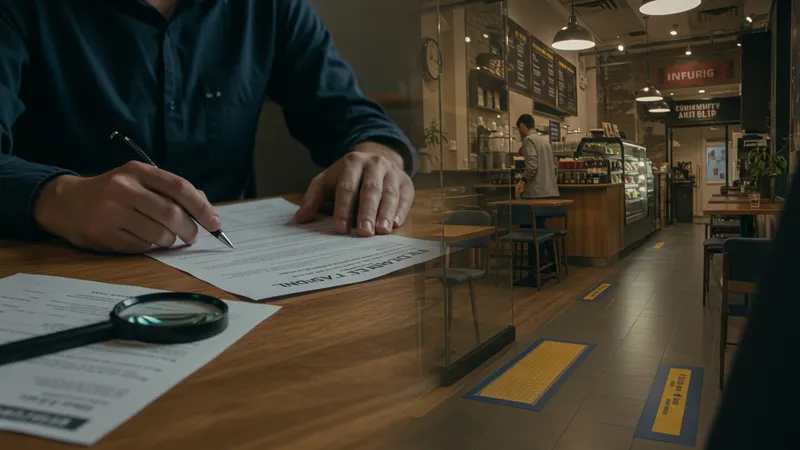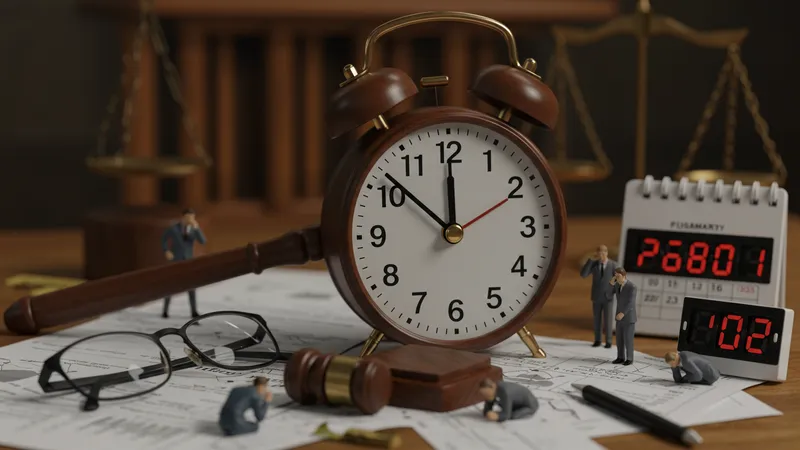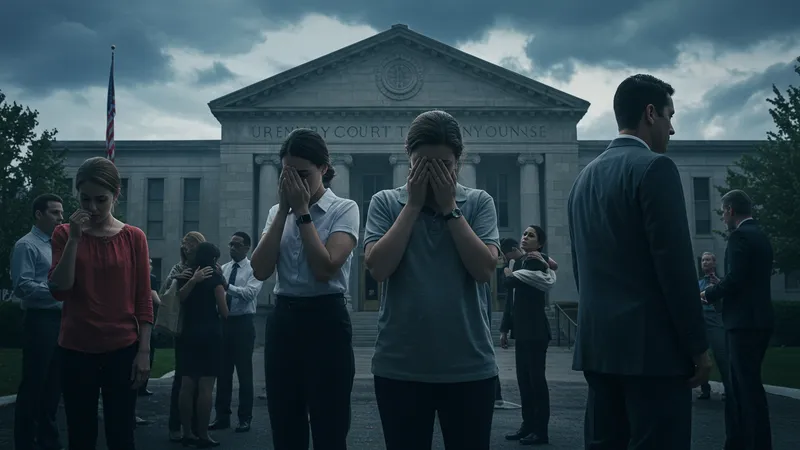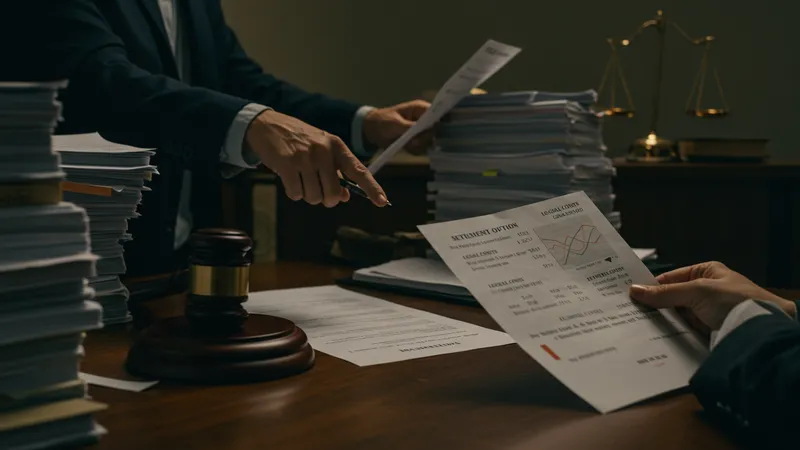Did you know that over 39 million people suffer personal injuries that require medical attention each year in the US alone? Yet, the real shocker is how little people know about their legal rights!
With an increasing number of accidents every year, understanding personal injury law isn’t just helpful; it’s essential. Navigating these waters can mean the difference between securing your future or facing financial peril.

Many people assume that personal injury cases merely involve trips, falls, and minor mishaps. But did you know that they also cover more intricate cases like defamation and emotional distress? The breadth of this legal field is astonishing. However, the most surprising aspect is how often victims leave money on the table simply by misunderstanding their rights. But that’s not even the wildest part…
Consider this: A staggering number of victims hesitate to take legal action because they're intimidated by the potential costs or the intricacies involved in lawsuits. Yet, personal injury attorneys often work on a contingency fee basis—meaning you don't pay unless they win the case. This shifts the financial risk away from the victim. But what happens when the case gets tangled in legal complexity, and who benefits most from these arrangements? What happens next shocked even the experts…
Filing a personal injury claim may seem straightforward, but the repercussions and underlying subtleties can surprise many. For one, launching a claim may lead to unexpected scrutiny of the victim’s own actions. Insurance companies, aiming to minimize payouts, often launch detailed investigations into the claimant's conduct at the time of the injury. This spotlight can feel invasive but being prepared can be advantageous. However, there's another layer to consider...

Surprisingly, filing a claim can lead to improvements in community safety standards. When businesses or locales know they risk financial repercussions, they’re more inclined to rectify potential hazards. Consider a locally popular café that, after several slips, finally installs anti-slip flooring due to claims, preventing future injuries. Yet, not every consequence is so positive...
Some victims face social stigma for pursuing legal action. An astounding number of people unknowingly contribute to this by jumping to conclusions about claimants’ motives. The societal portrayal of claimants as opportunists can deter deserving victims from seeking justice. What’s more surprising is how opinions change when personal experience is touched. But diving deeper, one more layer persists...
Despite these potential challenges, numerous claimants express relief and empowerment post-settlement. Knowing they took action leads to a sense of closure and validation. With a successful claim, many decide to advocate for others, shifting from a personal battle to societal change. But there’s one more twist in these tales…
Insurance companies play a pivotal role in personal injury claims, and this can be a double-edged sword for victims seeking justice. While they provide necessary compensation, their primary goal is to minimize payouts. Did you know that insurance adjusters often receive training in negotiation strategies to protect company interests? This insight might change how you approach discussions...

If you're not cautious, initial low-ball offers can trap many into accepting less than they deserve. The intricacies of these negotiations reveal surprising tactics, like using difficult terminologies to confuse claimants or imply less liability. However, if a claimant persists, this can be a game-changer.
On the flip side, understanding your policy can put you in a more advantageous position. You’d be surprised at how many clauses favor the insured but often go unnoticed in the fine print. Grasping these details can swing things significantly in your favor, underscoring the importance of being well-informed.
Even seasoned negotiators admit surprises in this realm. What you read next might change how you see this forever as we delve into manipulative strategies withheld from public knowledge until now...
The timing of filing a personal injury claim is crucial. Many victims lose out on potential compensation simply because they wait too long, not knowing each state has statutes of limitations. These laws set deadlines that cut off your right to seek damages after a specified period, sometimes as little as one year. Acting swiftly can mean the difference between justice served and doors closed.

One might assume they have ample time, but delays can compromise case strength. Memories fade, evidence disappears, and witnesses become harder to track. The urgency is clear: starting early protects your chance for a fair settlement.
But taking action promptly also impacts the psychological burden of an injury. Facing your case head-on can be freeing, helping victims move beyond trauma and start healing. Delaying the process often exacerbates stress and prolongs emotional turmoil.
Still, a surprising factor often gets overlooked: Keeping records immediately following an incident drastically influences outcomes. The next section uncovers why these overlooked actions can alter your entire case trajectory...
Documenting every detail post-injury might seem excessive at first, but it could be the linchpin of your claim. The most minute specifics—often ignored—can drastically influence outcomes. Medical reports, witness statements, and photographic evidence establish the foundation upon which claims succeed or fail.

Victims often forget key details in the chaos following an accident. Recording as much information as possible helps negate memory biases. Revisiting these notes when emotions are calmer clarifies incidents with newfound objectivity, bolstering claims.
Moreover, proper documentation doesn't just support compensation pursuits; it guards against counterclaims. Should an opposing party question your narrative, you’re armed with irrefutable records. Underscoring the need lies in an alarming number of cases overturned due to shoddy paperwork.
You might argue these steps sound over-preparatory. But what if missing one detail costs you the settlement you rightfully deserve? The simplicity yet importance of documentation will leave you reconsidering norms... as we uncover more layers about long-term implications.
Pursuing an injury claim extends beyond tangible compensation; it deeply affects the victim’s psyche. Mind and body are intricately linked, and the stress of legal processes often manifests physically, exacerbating the injury's aftermath. Studies indicate that claimants frequently face an emotional roller coaster, oscillating between hope, anxiety, and disappointment.

Interestingly, some victims report relief post-trial, describing a sense of closure upon sharing their truths in court. The emotional toll before this can be a hurdle, requiring robust support systems and often psychological counsel, highlighting another cost often unconsidered.
On a societal reframe, communities that witness such cases develop increased empathy towards victims. The public might start understanding the endurance required and rethink assumptions about ‘easy money’ from settlements, redefining narratives around compensation culture.
Though pursuing compensation takes its toll, knowing this aspect might prepare you emotionally. And yet, surprisingly, some are drawn to legal careers afterward, finding purpose in easing others’ battles. We’re about to delve into a potential shift from victim to advocate next...
For some victims, the journey through the personal injury claims process acts as a catalyst for change, transforming them into advocates for others. This shift is driven by empathy, expertise gained, and a desire to improve the system for future victims. Many see beyond their personal battles, realizing the broader fight against systemic issues.

The transformation process is profound. Those who once felt powerless now harness their voices, empowering themselves and others. Organizations benefit from their insights, as victim-turned-advocates bring authenticity and fresh perspectives, reshaping support services and policy reform efforts.
Over time, former claimants often pursue further education in law, counseling, or public advocacy. This career shift rejuvenates their sense of purpose and opens new avenues to effect tangible change, proving that adversity can promise unforeseen opportunities.
Curiously, their firsthand experiences give them credibility that conventional narratives lack. As we conclude, the takeaway includes profound self-realization stories you wouldn't expect...
There's an entire story behind settlements that often stays untold. Most think that settlements equate to undeniable victory, yet the reality paints a diverse picture. Often, the amounts cited in news headlines don’t reach the claimant’s pockets due to legal costs and insurance gaps.

The negotiation process itself is laden with strategic complexities. Lawyers see pitfalls unseen by the untrained eye, and this understanding might just save you from unwelcome surprises. Yet, what if you realize settlements aren't as final as they seem?
Receiving a settlement may give some claimants peace, while others feel shortchanged, questioning if further legal actions could yield better results. Understanding this multifaceted conclusion helps set more realistic expectations beyond the immediate financial gain.
Finally, this perspective encourages future claimants to take charge, fostering informed decision-making rather than passive acceptance. Romanticizing settlements dismisses their strategic depth—which we’ll uncover leading to the conclusion...
In summary, personal injury law is an intricate web of strategies, emotions, and unexpected outcomes. Embracing the process requires understanding the legal, personal, and systemic dimensions involved. This comprehensive awareness is not merely about financial compensation—it aims for justice, psychological closure, and potentially yielding societal change.
Encourage those on similar paths to grasp and share these insights, ensuring broader awareness and more informed communities. Share this guide to enlighten others about handling injury claims, advocating for rights, and navigating legal terrains with confidence.